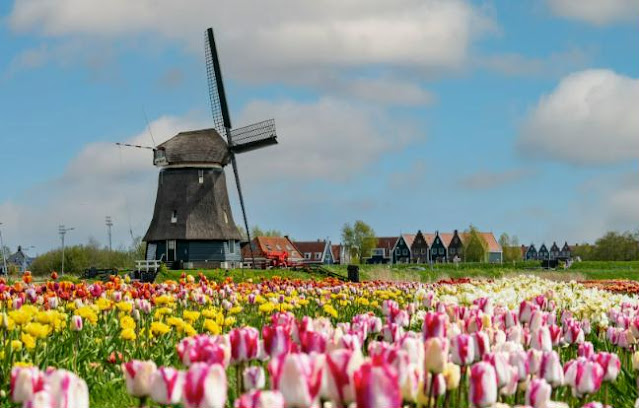What’s the most popular colour in the world? I’ll come to that in a minute but I can reveal now that it is not a beigey sort of brown. No, that’s just mine. I met a Colour Therapist on a train journey many years ago who explained that the seven colours of the spectrum relate to the seven main chakras - or energy centres - of the body. Depending on your mood and physical health, she would use specific colours to treat the afflicted parts of someone’s body. I wonder now what she’d use beigey brown for.

But what is colour anyway? Well, it’s not actually a thing in itself. In physics, colour is associated specifically with electromagnetic radiation of a certain range of wavelengths. The visible light spectrum is the segment of the electromagnetic spectrum that the human eye can view. Typically, the human eye can detect wavelengths from 380 to 700 nanometres.
Our ability to distinguish colours is based upon the varying sensitivity of different cells, called rods and cones, in the retina to light of those different wavelengths. Rods are responsible for vision at low light levels, cones are responsible for vision at higher light levels. When light hits the rods and cones (termed photoreceptors) they turn the light into electrical signals. These electrical signals travel from the retina through the optic nerve to the brain. Then the brain turns the signals into the images we can see.
And what we see in terms of colour preferences according to Chris, the founder of The Organic & Natural Paint Co, is an astonishing range of opinions and emotions that are influenced by cultural, social, and personal factors. He is the one who has done the research to discover that favourite colour.
But before we come to that he also asked ‘What is the Most Humble Colour’? A question that had never occurred to me. He says that a humble colour can be described as one that evokes feelings of modesty, simplicity, and understatement. It is a hue that doesn’t demand attention but rather blends into the background, providing a subtle and calming presence. This is me.
And then ‘How Do I Choose My Favourite Colour?’ He says that one way to identify your favourite colour is to consider the feelings, memories, and associations that different hues evoke for you. For example, if the colour blue brings to mind happy childhood memories or feelings of tranquillity, it may be a strong contender for your favourite shade.
Pay attention to your emotional reactions when encountering various colours. If a particular hue consistently brings you joy or a sense of calm, it may be your favourite colour.
He suggests that your favourite colour may be influenced by the colours that dominate your surroundings. Take note of the hues that recur in your wardrobe, home décor, and other personal spaces. This may provide clues to the colours that resonate most with you. Well, the fact that my bathroom is red, my kitchen is blue and my lounge is brown has a resonance, but I’m not sure what it means. But my walls are a glorious shade of beige.
So, I’ll move on to the great reveal and let Chris explain:
With over 7 billion people on the planet, identifying the world’s favourite colour is no small feat. However, we’ve delved into the subject to uncover the most beloved hue across different cultures and time periods. The result? Blue emerges as the most adored colour by people across the globe.
And just to show I’m with it and for your information British Vogue and Pantone declared ‘Mocha Mousse’ the Colour of The Year 2025 which ‘captures the global zeitgeist’ and answers ‘our desire for comfort’ in its references to chocolate, coffee and indulgence.
Well, I’ve been saying things about colour:
Once it was the Colour of Saying
Once it was the colour of saying
Soaked my table the uglier side of a hill
With a capsized field where a school sat still
And a black and white patch of girls grew playing;
The gentle seaslides of saying I must undo
That all the charmingly drowned arise to cockcrow and kill.
When I whistled with mitching boys through a reservoir park
Where at night we stoned the cold and cuckoo
Lovers in the dirt of their leafy beds,
The shade of their trees was a word of many shades
And a lamp of lightning for the poor in the dark;
Now my saying shall be my undoing,
And every stone I wind off like a reel.
Dylan Thomas
Once it was the colour of saying
Soaked my table the uglier side of a hill
With a capsized field where a school sat still
And a black and white patch of girls grew playing;
The gentle seaslides of saying I must undo
That all the charmingly drowned arise to cockcrow and kill.
When I whistled with mitching boys through a reservoir park
Where at night we stoned the cold and cuckoo
Lovers in the dirt of their leafy beds,
The shade of their trees was a word of many shades
And a lamp of lightning for the poor in the dark;
Now my saying shall be my undoing,
And every stone I wind off like a reel.
Dylan Thomas

Thanks for reading, Terry Q.









